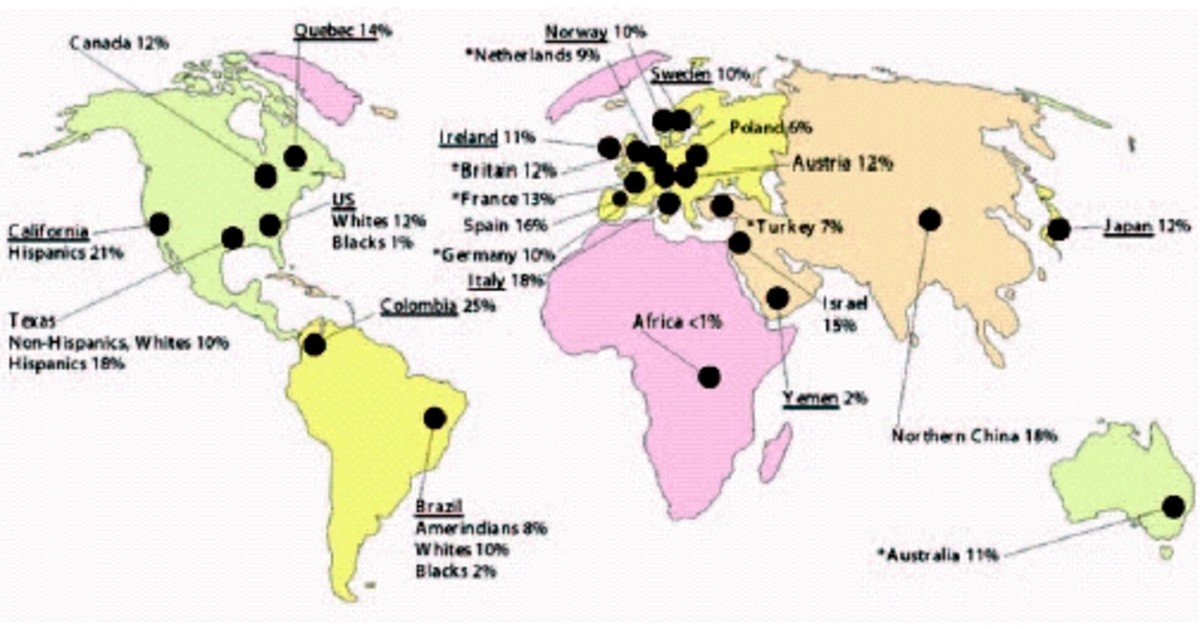Ethical Dilemmas

Kant’s Categorical Imperative
There are many moral theories in the world today, and one of those is Immanuel Kant’s. He developed a moral theory using what he calls the categorical imperative. According to the Merriam-Webster online collegiate dictionary, a categorical imperative is, “a moral obligation or command that is unconditionally and universally binding. “ His imperative is based on reason and duty rather than religion and God. In this essay, Kant’s reasoning regarding his categorical imperative will be discussed as well as how that imperative can be applied to the ethical dilemma of genetic testing that affects the United States.
Kant’s categorical imperative is like the Golden Rule, (Haynes, 2010). It is an ethical code that should be followed by humanity. Kant believes that people should act in a way they would want others to act (Haynes, 2010). It is like the saying treat others as you would like to be treated. People should look at their actions and decide if they would like that to be the universal law, (Haynes, 2010). For instance, if one person hits his friend every time he disagree with him, would he want all humanity behaving in that way when they disagreed with someone?
Kant developed his categorical imperative and based it on reason alone, because of those out there who do not believe in religion, (Haynes, 2010). Kant knew there were many people in the world that went against religion and God (Haynes, 2010). Therefore, he wanted to develop a set of rules or standards that people could live by without using religion, but reason instead. It is a way to determine whether something is moral without referring to a higher power.

Genetic Testing
Genetic testing is an ethical dilemma that the United States faces. Genetic testing includes tests that are used to determine whether someone has a genetic condition or disease. For instance, genetic testing can be done on pregnant mothers to find out if the unborn baby has Down syndrome. Doing genetic, tests, however, are thought of as both unethical and ethical by citizens. The reason that genetic testing on unborn babies presents an ethical dilemma is because after receiving the results, the mother may decide to terminate the pregnancy, (Sijmons & Van Langen, 2011). The act of terminating the pregnancy is a controversial subject, because some see it as killing an unborn baby, while others believe it is best for the child and family.
Kant’s categorical imperative can be used when addressing the issue of genetic testing. As I mentioned earlier, Kant tells people to look at their actions and decide whether they would like their actions to be the universal law. In this case, would humanity want the universal law to be that when genetic tests are done and a mother receives positive tests results for down syndrome in their unborn baby she aborts the baby? This would mean that the next generations would not contain people with Down syndrome, assuming that the genetic tests done detected the trisomy 21 gene.
Among moral theories that have been developed over the years, Kant’s theory regarding the categorical imperative sticks out. Kant developed this theory using reason as the basis, knowing there are those out there with no belief in a higher power. He wanted those people to be able to have an ethical code by which to live. The categorical imperative can be used to address ethical dilemmas and right versus wrong. The genetic testing scenario, for instance, can be addressed using the imperative. If aborting unborn babies because the trisomy 21 gene was detected through genetic tests became the universal law, then there would be no people with Down syndrome in the next generations. With no Down syndrome people in the world, future generations would be denied the gift of knowing someone with the genetic disorder.
References
Haynes, D. (2010). The Effect of Perspective on One’s Perception of Ethical Behavior. [LoudBooks E-Reader]. Retrieved from https://lc.gcu.edu
Sijmons, R., Van Langen, I., & Sijmons, J. (2011). A clinical perspective on ethical issues in genetic testing. Accountability In Research, 18(3), 148-162. doi:10.1080/08989621.2011.575033
"The moral values, ethical codes and laws that guide our choices in normal times are, if anything, even more important to help us navigate the confusing and disorienting time of a disaster."
Sheri Fink
Read more at http://www.brainyquote.com/quotes/keywords/ethical.html#QTZvOdZWfZjUJv67.99









